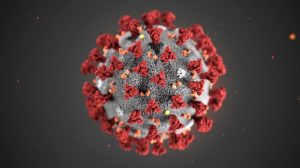The new pioneering AT MicroProtect technology, which inactivates 99.97% of SARS-CoV-2 virus particles in the air in a minute, has now successfully managed to destroy three of the four tuberculosis bacteria strains.
Tuberculosis is an infectious disease caused by the Mycobacterium tuberculosis complex, a dangerous bacterium, that is also transmitted from person to person by air. “Aerial transmission of microorganisms, whether viruses or bacteria, are one of the most dangerous and difficult to control and it is imperative that we not only develop technology and effective solutions, but create technologies that are effective on a grand scale,” stated Investigation Coordinator, João Nunes in a recent press release.
The innovative technique was created as part of a project led by the BLC3 Technology and Innovation Campus, in Oliveira do Hospital, in Coimbra, in partnership with the University of Minho and the Pharmacy faculties of the universities of Lisbon and Coimbra.
João Nunes went on to say, that this is a very important result, and one that further demonstrates the potential of AT MicroProtect. Moreover, they are moving towards trials and tests with bacteria of the genus Legionella, which also causes serious health problems, such as pneumonia.
Furthermore, now that this technology has been acknowledged internationally new technologies can be developed into the identification of viruses and bacteria that cause infectious and airborne diseases, that can act as a microbiological alarm in the detection of levels of aerial contamination of viruses and bacteria above human tolerance levels.
As such, AT MicroProtect could be used in hospitals and other health facilities, buildings and collective transport systems, and other places where a high number of people are present, such as shopping centres, train stations and airports.
However, there is one drawback, the project has been self financed by all those involved in the project, and unless monies are procured to invest in further studies and trials, their innovative technologies may never leave the laboratory. In order to facilitate further research, a level 3 microbiological laboratory needs to be built, as without it it will be impossible to create and develop technologies that allow scientists and researchers to identify effective responses to future pandemics, epidemics or outbreaks of microbiological contamination.
It would appear that tests using AT MicroProtect technologies have been carried out in Spain and the United Kingdom.
Samantha Gannon
info at madeira-weekly.com






